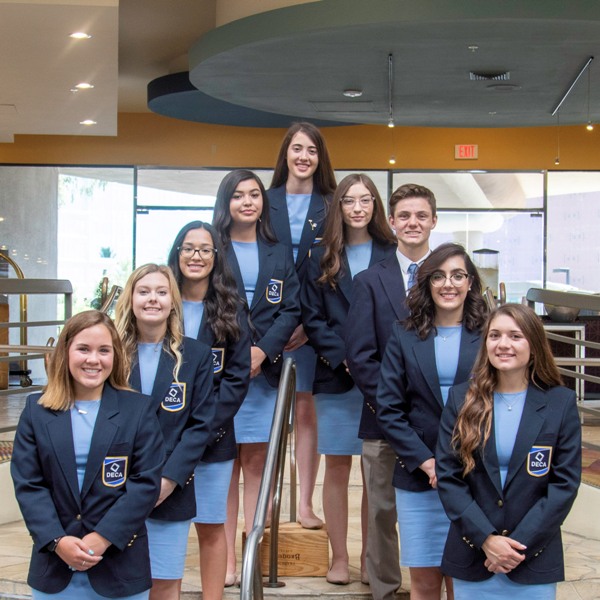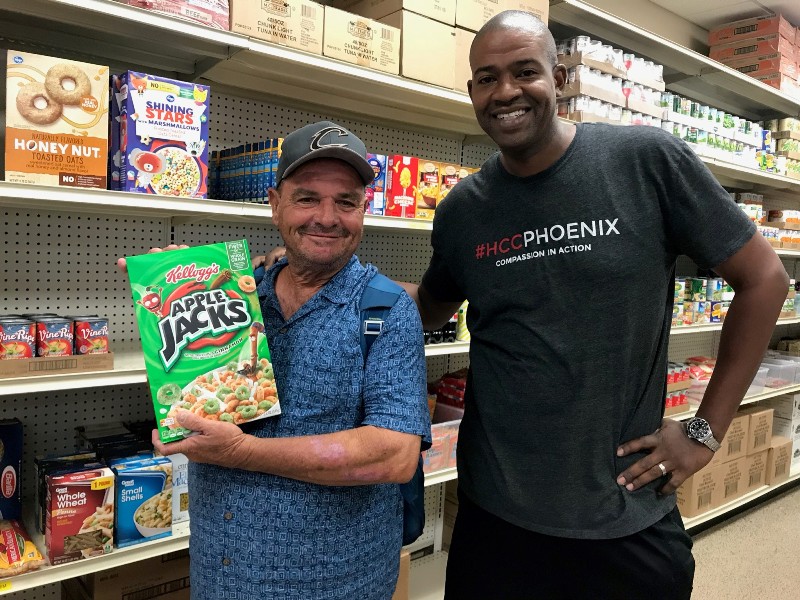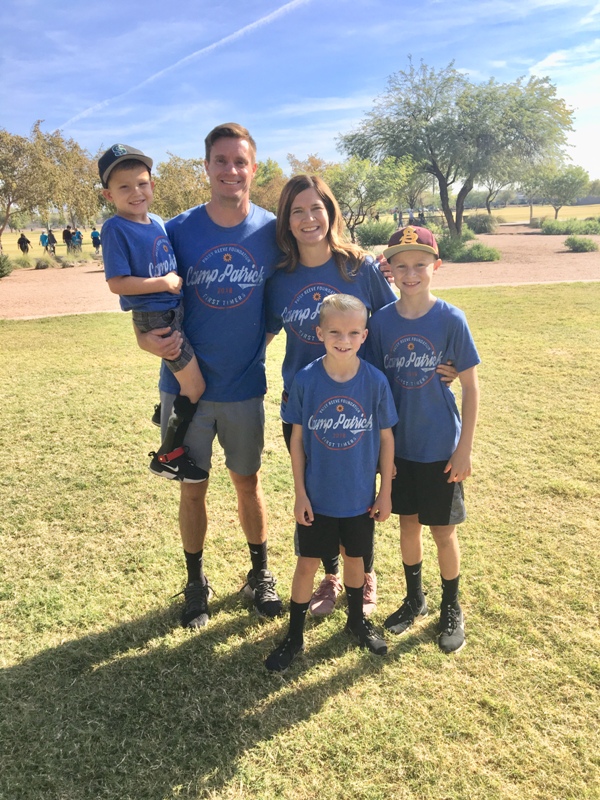
AZFoothills.com is proud to announce Arizona DECA as the winner of the third-annual Nonprofit of the Year competition. Approximately 320 Valley organizations vied for the winning title and a sponsorship package from Arizona Foothills Magazine. Here, get to know the nonprofit that aims to prepare students for a life of leadership and possibilities.
Not every high school student can say they’ve networked with leading titans of industry or traveled the country to compete in business competitions, but Arizona DECA makes all of this possible and more. Watch out because these high achievers may become your boss one day—if they aren’t already.
In the fast-paced environment of the 21st century, now more than ever employers are seeking candidates who can think on their feet and take initiative. Since 1961, Arizona DECA—a nonprofit held by the Arizona Department of Education—has prepared tens of thousands of ambitious students to become leaders in finance, marketing, hospitality, management and entrepreneurship.
With 105 active chapters and 6,251 active members at high schools and colleges across the state, Arizona DECA provides emerging leaders and entrepreneurs opportunities for leadership experience, networking, professional development and travel. DECA’s Comprehensive Learning Program supports Career Clusters, Common Core and National Curriculum Standards, meaning it seamlessly integrates classroom learning with the skills necessary to succeed in the workforce. The result is students who are not only ready to make the transition to college, but are also equipped to tackle challenges that may arise in careers in business and beyond.
Kathy Frommer, former executive director and an alum of the program herself, speaks to the enduring impact of DECA on the students who participate. “Kids that early on have to make presentations, they’re meeting strangers, they’re having to think on their feet—those skills last a lifetime.” Even students who do not end up going into business and marketing find that DECA has provided them the confidence necessary to be successful in careers like law and medicine, among others. (This past July, Francisco Ortiz y Davis took over the helm of Arizona DECA as executive director.)
Arizona DECA provides unparalleled opportunities for experiential learning in competitive settings. In this way, DECA offers a niche for students who may have struggled to find a passion in high school to truly excel. “It’s a thing of beauty when you see a student come through and they’re not the athlete, they’re not the musician, they’re not the artist–and they get in there and they realize that this is their thing and it really clicks with them,” Frommer says.
Upon completion of the program, students have mastered the four Cs: critical thinking and problem solving, communication, collaboration, and creativity and innovation. Arizona DECA firmly believes these higher-order skills are paramount to achieving success in the modern workplace.
Students who participate in DECA are more likely to seek out challenging courses, with 34 percent enrolling in Advanced Placement courses compared to the national average of 22 percent. They are also more likely to pursue specialized degrees, particularly in the fields of business, communications and economics. Moreover, 88 percent reported that DECA empowered them to become effective leaders and that the program connected school to the real world. These numbers speak for themselves; DECA participants are prepared to pave successful futures.
In the coming years, Frommer hopes to make DECA available to students at the few remaining high schools without programs, as well to expand the concept to junior high schools. “It’s really a big push in the nation to start to offer career and technical education at an earlier age—even elementary—so the language and the conversation starts a lot younger,” she says.

Second-Place: Harvest Compassion Center
Harvest Compassion Center (HCC) was born eight years ago, when the country was still feeling the effects of the recession and thousands of Phoenix residents were in need of basic necessities. HCC’s mission is simple: to provide food, clothing and hope to the underserved in the greater Phoenix area. The centers—located in North Phoenix, Maryvale and Chandler—are a one-stop shop for those in need to access free food, hygiene, baby and clothing items once every 30 days. Since its opening, HCC has served more than 100,000 individuals with the help of the 1,300-plus volunteers who run each location annually. The public can get involved by volunteering, hosting a food drive, joining the kid’s program or donating. harvestcompassioncenter.org.

Third-Place: Camp Patrick
Although Camp Patrick has only been in operation for two summers, the organization has already made a tremendous impact on the lives of those living with Spina Bifida and their families. At the free sleepaway camp held at Whispering Hope Ranch in Payson, children with Spina Bifida build confidence, try new things, increase their independence and forge friendships with other children. All campers can bring along one sibling to make the time away from home a little less intimidating. Camp Patrick is operated by volunteers and funded entirely through donations, so its three fundraising events—a September golf tournament, the Touch-a-Truck Family event in January and the annual gala in March—are critical to making the experience possible for all 75 campers and counting. camppatrick.com.